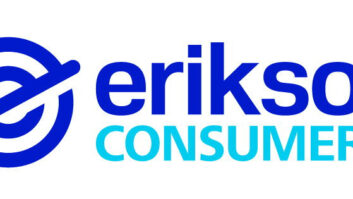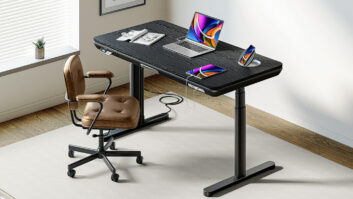New CD copyright-protection technologies will overcome consumer objections to previous methods and spur adoption by music companies, their advocates contend.
“Two years ago, the music companies wanted a total lockout on the PC,” said Peter Jacobs, CEO of Phoenix-based SunnComm. “Our new technologies include fair use.”
In the U.S., the ability to play music CDs on a PC “is fundamental to the acceptance” of copyright-protection technologies, agreed Macrovision senior VP Brian Dunn.
Previous technologies developed by SunnComm, Macrovision and others intentionally prevented the playback of CDs inserted in a PC’s CD-ROM drive in order to prevent ripping and redistribution over the Internet. The technologies were used mainly in CDs distributed outside the U.S. Unintentionally, older versions of these technologies prevented playback in many DVD players and in standard audio CD players built around a CD-ROM drive. SunnComm and Macrovision said they’ve since overcome that problem.
In announcements here during Midem, the international music-industry trade conference, the two companies said their competing new technologies continue to block PC playback of a disc’s Redbook CD audio tracks. However, through a PC’s standard Windows Media Player application, they would allow PC playback of compressed Windows Media Audio (WMA) files that also reside on the CD in a so-called “second session.” Playback of the uncompressed Redbook tracks through standard audio CD and DVD players would be unaffected.
The new technologies would be used in conjunction with Microsoft’s digital rights management (DRM) technology, which would give copyright holders the option of letting PC users transfer the compressed WMA files to their PC’s hard drive. Users could even be allowed to transfer the WMA files to portable devices supporting WMA’s codec and DRM technology.
Authentication technologies would prevent the sharing of usable files through file-sharing programs such as Morpheus.
SunnComm said its technology would also give copyright holders the option of letting users e-mail WMA-format songs to friends who could play them for a limited period or for a certain number of times.
SunnComm added that it is in “active negotiations” with Universal and EMI Recorded Music to incorporate its technologies in commercial releases, Jacobs said. Executives from both music companies were quoted in a Microsoft press release as praising the introduction of the Toolkit software.
Meantime, the technologies will be used by Sterling Entertainment Group for the March release of Ike and Tina Turner’s The Early Sessions, which consists of newly discovered tracks, SunnComm said.
Also at Midem, Macrovision unveiled its CDS-300 technology, which stops PCs from playing a CD’s Redbook audio tracks and thus foils Redbook-track ripping.
Like SunnComm’s technology, CDS-300 can be used to complement a CD’s DRM-protected WMA tracks. The WMA files would be playable through a PC’s standard Windows Media Player. The WMA files could also be transferred to the PC’s hard drive for later playback or to select portable devices.
CDS-300 goes a step farther than SunnComm’s technology, however, in preventing e-mailing of the WMA files. And its local authentication technology ensures that only an original disc, and not a copy, can be played on a PC. Authentication keys would be stripped off during the copying process, Macrovision said.













